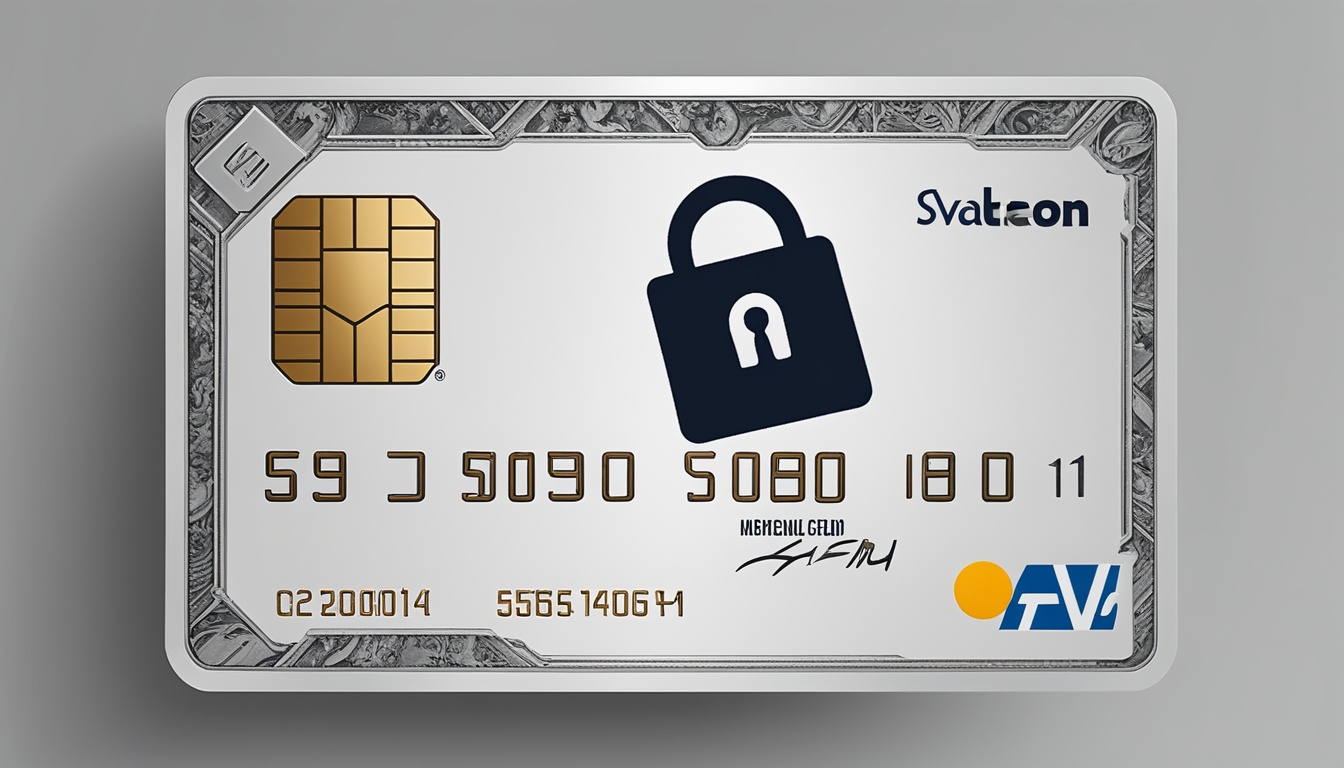Ever wonder why some folks manage money well and others don’t? Becoming financially responsible is key to controlling your money and securing your future.
It’s about making a plan for your money and expenses. This helps you manage your finances easier. Plus, being financially literate helps you make smart money choices.
Good habits are important, like paying off credit cards each month to avoid extra charges1. Keep your credit use below 30%, as the Consumer Financial Protection Bureau suggests1. This way, you can save for unexpected costs, stay out of debt, and build good credit. Also, spending less than you make each month cuts stress and keeps debt away1.
These habits don’t just keep you secure financially; they also bring financial peace. Are you ready to learn how to be financially smart? Check out this guide for helpful tips to change your financial life!
Understanding Financial Responsibility
Financial responsibility is key for reaching your goals, both now and in the future. It means managing your money wisely, making a budget, and not spending more than you make. This helps you take care of your needs today while saving for what you want tomorrow.
What is Financial Responsibility?
Being financially responsible means making smart choices with your money. You need to save, spend less than you earn, and keep track of your spending.2 Paying your bills on time boosts your credit score and cuts extra costs.1
Also, it’s about setting goals like saving for retirement or an emergency fund.1 These goals are crucial for a secure future.
Importance of Living Within Your Means
Spending less than you earn is vital for your financial health.1 It lowers debt and helps you steer clear of money troubles. For example, your home costs should not be more than 2.5 times your yearly income.2 And, your monthly mortgage should not exceed 30% of your monthly income.2 Staying within these limits makes it easier to reduce debt and reach your goals.
Budgeting is a key tool for better financial understanding.2 It helps you control your spending, save regularly, and prepare for surprises. By budgeting, you avoid letting others’ spending habits impact yours.2 This is a big step towards financial responsibility.
Creating a Realistic Budget
Making a realistic budget is key to handling your finances well. It lets you see what you earn and spend.3 This way, you can manage debts and plan your money better.
Establishing Monthly Income and Expenses
Start by figuring out what you make each month. This is important if your income changes often. Use the last three to six months for a good estimate3. Then, divide your spending into must-haves like rent and fun things like movies3. Knowing the difference helps you make a budget that really fits your life.
Allocating Funds for Savings and Debt Payment
Use the 50/30/20 rule for your money: half for needs, three-tenths for wants, and the rest for saving or paying off debts4. Choose a budgeting method that works for you, such as the envelope system or zero-based budgeting3. Sticking to this plan will help you manage debts and save for the future.
Being able to adjust your budget as your goals change is crucial3. First, take any chance to get 401(k) matches from work for the tax perks and growth4. Making smart choices helps you reach both short and long-term financial dreams.
| Budget Component | Recommended Allocation |
|---|---|
| Necessities | 50% |
| Discretionary Spending | 30% |
| Savings and Debt Payment | 20% |
Start by tackling debts with high interest first and then save for emergencies4. With careful planning and smart debt handling, you’ll be on your way to financial security and a strong future.
Developing Smart Spending Habits
Learning to spend smartly is crucial for financial wellbeing. It means knowing the difference between what you need and what you just want. It also includes skipping buying things on a whim. This way, you can manage your money better and lower stress.
Distinguishing Between Needs and Wants
To spend wisely, it’s important to know what’s necessary and what’s not. Essentials include things like your home’s rent, bills, and food. On the other hand, non-essentials can be eating out or the latest tech. Follow the 50/30/20 rule to keep your spending in check: 50% on needs, 30% on wants, and 20% on saving and paying off debt5. This helps make sure you cover your basic needs while still having fun responsibly.
Avoiding Impulse Purchases
Not making impulse buys is key to smart spending. Look back on your buying habits for the past six months to pinpoint unnecessary spending5. Using budgeting tools and apps can also keep you in line5. Setting a budget and following it is important, as it aligns your spending with what you earn6. Together, these steps enhance financial discipline and smart use of your resources.
At the end of the day, knowing what you need vs. what you want and avoiding quick buys are essential. Being consistent with these habits can lead to a financially stable and less stressful life.
Building an Emergency Fund

An emergency fund is key to a financially secure life. It serves as a vital financial safety net, shielding you from unexpected costs that threaten stability. By having one, you avoid falling into debt from credit cards or loans, and enjoy peace of mind in troubled times.
Importance of Having a Financial Safety Net
A financial safety net is crucial for staying financially healthy. Stats show that people who can’t bounce back from a financial hit often lack savings for future surprises7. With an emergency fund, unexpected bills don’t strain your budget or eat into your retirement savings7. For those living from paycheck to paycheck, saving even a little boosts financial security and cuts credit reliance7.
Strategies for Saving in Difficult Times
Good saving methods are vital for an emergency fund. Aim for a clear savings target to keep motivated and on track7. Set up regular savings transfers with your bank or credit union for steady saving7. If money’s tight, using a tax refund – often the biggest check Americans get each year – can greatly enhance your emergency savings7.
Here are some practical tips for saving:
- Automate Savings: Arrange automatic transfers to consistently build your fund.
- Reduce Expenses: Spot and cut back on non-essential spending to increase savings.
- Utilize Windfalls: Put unexpected money, like bonuses or tax refunds, into your emergency fund.
Starting an emergency fund is a smart move towards financial wellness. With focused effort and these saving tips, you can build a strong safety net against life’s unpredicted events.
| Strategy | Benefit |
|---|---|
| Automate Savings | Ensures consistent contributions |
| Reduce Expenses | Frees up additional money for saving |
| Utilize Windfalls | Boosts emergency fund with unexpected income |
Financially Responsible Use of Credit

Understanding how to handle your credit can greatly improve your financial wellbeing. Using credit wisely means forming habits that keep it helpful, not harmful.
Keeping Credit Utilization Low
Keeping your credit use low is key to using credit well. The Consumer Financial Protection Bureau says to keep your credit use under 30% for good financial health1. This shows you’re not too dependent on credit, which looks good on your credit report1.
It’s also smart to use credit cards only when needed or in emergencies. This prevents building up debt, helping you manage your credit better through your financial life2.
Paying Bills on Time
Paying bills when they’re due is crucial for good credit use. Missing payments can hurt your credit score for up to seven years1. On-time payments avoid extra fees and protect your credit score. This makes getting loans easier and opens up more financial chances.
Starting to pay on time early on sets you up for financial success later8. Regular, on-time payments show you are serious about managing your credit well. This plays a big role in building a strong credit history.
Investing for the Future
Understanding different investment strategies is key to investing for the future. Taking advantage of employer-sponsored plans boosts both your current finances and retirement security.
Introduction to Investment Strategies
To start building wealth, learn about various investment strategies. Investing early benefits from compound interest9. Your long-term savings grow, increasing your funds9. Setting short-term goals helps you live within your means and save for retirement10.
It’s important to match your investments with your risk tolerance and goals. Begin financial planning by setting goals for the short, middle, and long term10. These steps are crucial for future investors.
Taking Advantage of Employer-Sponsored Plans
Employer-sponsored plans are a great way to increase your savings. Employers often match your contributions, helping your savings grow faster. Save before you spend to ensure you meet your financial goals9. This helps you stay financially stable.
These plans often come with tax benefits, making them efficient for saving. Starting with saving 10% of your income is advised for investment growth2. Over time, your savings will see substantial growth thanks to compounded returns.
Learning about investments, making smart asset choices, and using employer plans are essential for financial strength. They prepare you for a secure retirement, bringing peace of mind on your investment path.
Conclusion
Handling money wisely involves learning a lot, planning carefully, and taking consistent steps. Getting to know how to manage your money helps you keep your financial life in balance. Understanding how to manage debt and use credit smartly is key to facing financial challenges without fear, strengthening your finances.
Making budget choices that match what you earn and what you spend is crucial for stability. It’s important to spend wisely and tell apart what you need from what you just want. Doing so keeps you from buying things on a whim and helps you manage your money better, reducing stress about finances.
Also, it’s vital to have an emergency fund for unexpected costs, to keep you safe financially. Saving money regularly, even when your income changes, helps you stay strong financially. Learning about investments and getting involved in plans offered by your job can help your savings grow and ensure a happy retirement.
Following these financial rules prepares you for a solid and happy future with money. Even though each person’s financial journey is unique, the basic steps to smart money handling guide you towards your goals. By putting these ideas into practice, you create a strong financial future for yourself, leading to a balanced and joyful life.
FAQ
What is Financial Responsibility?
How important is living within your means?
How do I create a realistic budget?
What are smart spending habits?
Why is it important to build an emergency fund?
How should I use credit responsibly?
What should I know about investment strategies?
How can I take advantage of employer-sponsored plans?
Source Links
- https://www.capitalone.com/learn-grow/money-management/financial-responsibility/
- https://www.investopedia.com/articles/pf/09/financial-responsibility.asp
- https://www.experian.com/blogs/ask-experian/how-to-make-a-budget/
- https://www.nerdwallet.com/article/finance/how-to-budget
- https://www.equifax.co.uk/resources/money-management/smart-money-management
- https://njfcu.org/smart-spending-smarter-planning/
- https://www.consumerfinance.gov/an-essential-guide-to-building-an-emergency-fund/
- https://www.cfsllc.com/blog/money-matters-why-it-pays-to-be-financially-responsible
- https://extension.umn.edu/personal-finances/saving-and-investing-your-future
- https://www.investopedia.com/articles/personal-finance/100516/setting-financial-goals/
- https://academic.oup.com/book/4701/chapter/146915847






